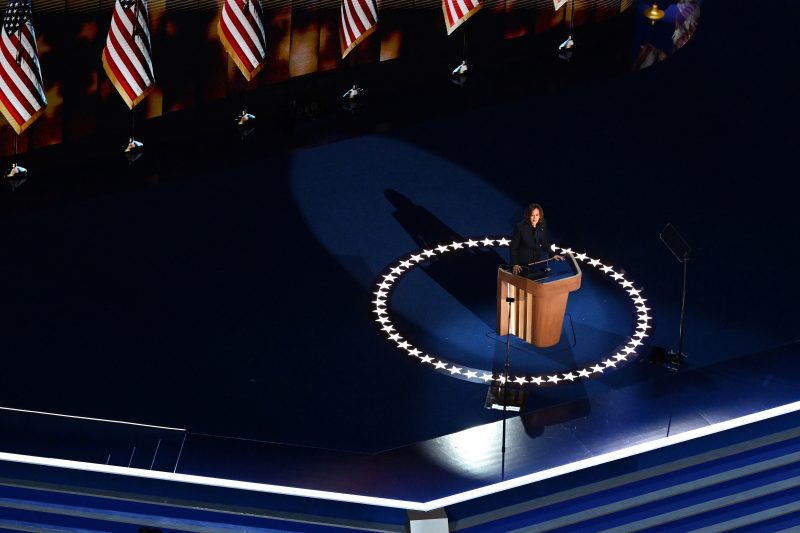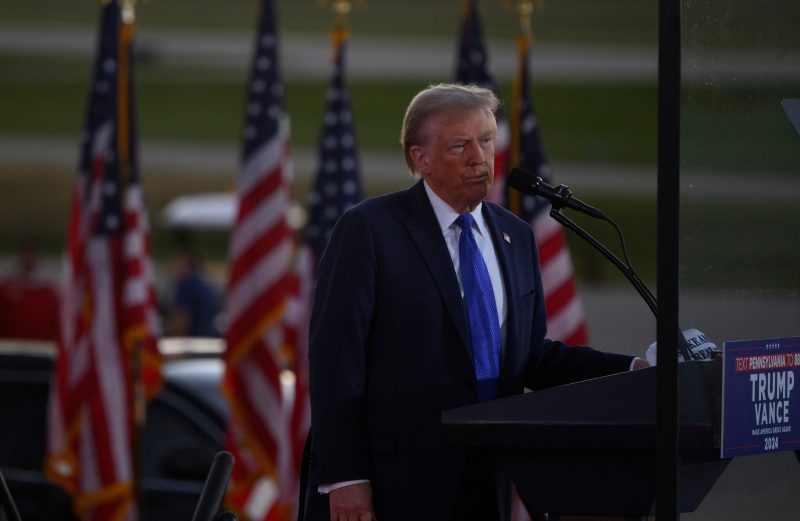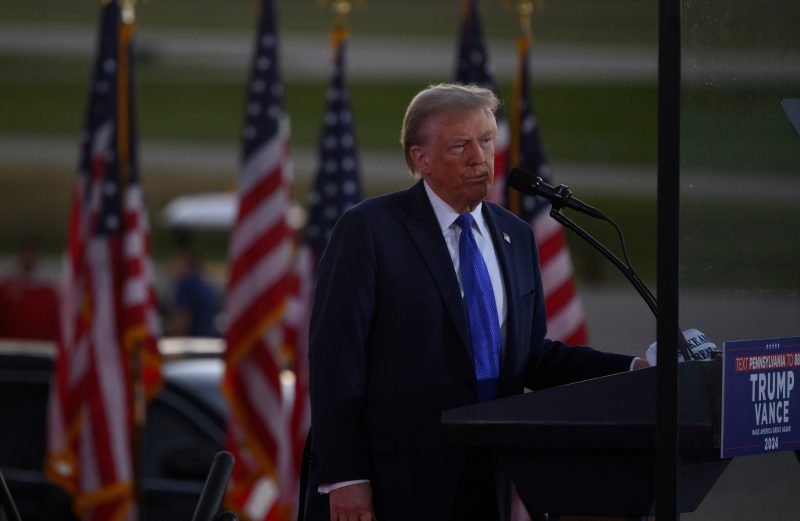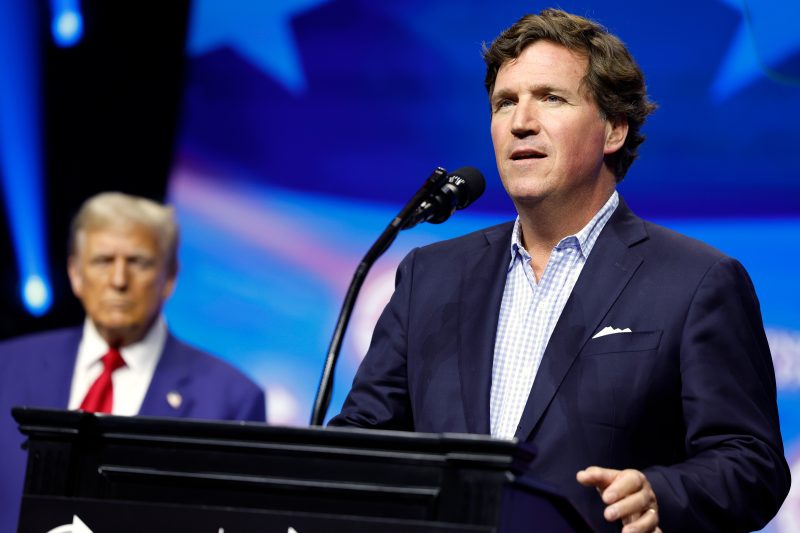
3 takeaways from Kamala Harris’s speech and the DNC on Day 4
CHICAGO — Welcome to The Campaign Moment, your guide to a 2024 election in which we’ll apparently have to make do with Beyoncé’s voice.
(Make sure you are subscribed to this newsletter here. And also listen to the Campaign Moment podcast on Apple Podcasts, Spotify or wherever you get your podcasts. We dove into Tim Walz’s ascent Thursday, and we’ll have a brand new episode Friday.)
The big moment
The Democratic National Convention concluded Thursday with Vice President Kamala Harris capping weeks of a whirlwind run for her party’s nomination with her acceptance speech.
Below are our final nightly takeaways from the convention.
1. Harris offers the simplest of pitches: Normalcy and competence
There was some question ahead of Harris’s speech about whether she would unveil a long-awaited robust policy agenda, or perhaps lean into what the Obamas seemed to tee up for her Tuesday — the chance to claim to be the successor to a movement of transformational change.
Harris instead emphasized something much simpler: a promise of normal competence.
“Our nation with this election has a precious, fleeting opportunity to move past the bitterness, cynicism and divisive battles of the past, a chance to chart a new way forward,” Harris said.
She continued with a series of not-subtle contrasts to Donald Trump’s unwieldiness.
“You can always trust me to put country above party and self, to hold sacred America’s fundamental principles, from the rule of law to free and fair elections, to the peaceful transfer of power,” she said.
She promised to be “a president who leads and listens, who is realistic, practical and has common sense and always fights for the American people.”
In case those “realistic” and “practical” references weren’t clear, Harris ultimately began invoking Trump by name, pitching herself as the antithesis of his unseriousness.
“In many ways, Donald Trump is an unserious man,” she said. “But the consequences of putting Donald Trump back in the White House are extremely serious.”
She highlighted Trump’s often-strange comments about dictators and called him “easy to manipulate with flattery and favors.” She cited “his explicit intent to jail journalists, political opponents and anyone he sees as the enemy” and “his explicit intent to deploy our active-duty military against our own citizens.”
She spent much of the rest of the speech rehashing many of the same attacks on Trump that featured throughout the convention, including the Jan. 6, 2021, attack on the Capitol and the overturning of Roe v. Wade. She outlined the broad strokes of her policy agenda, which included protecting voting rights and reproductive rights, as well as middle-class tax cuts and standing by Ukraine.
None of it was overly detailed.
She actually spent about as much time on the war in Gaza as any other issue — despite the convention previously treating the issue gingerly. Harris made strong statements about Israel’s right to defend itself, while also emphasizing the suffering in Gaza and the need for a cease-fire, which she insisted was her huge priority right now.
In sum, she was asking: Do you really want to go back to that chaos?
So far, being viewed as a competent if somewhat undefined alternative has worked for her, and she’ll apparently keep riding with that.
2. Democrats go for a contrast — darkness into light
Thursday’s program had a markedly different feel from the first three days. Instead of featuring a series of high-profile speakers leading up to the main event, the convention opted for a slow-building contrast, going from a program of darkness into the light of Harris’s speech.
The first few hours were heavy, with multiple speakers addressing ugly recent moments in America’s history. There were gun-violence survivors including former congresswoman Gabrielle Giffords (D-Ariz.) and Abbey Clements, a former teacher at Sandy Hook Elementary, scene of a massacre of schoolchildren in 2012. There were members of the “Central Park Five” — more recently known as the “Exonerated Five” — whom Trump spotlighted while calling for New York to institute the death penalty. There was Anya Cook, who nearly died after being denied care after Florida instituted an abortion ban. And there was the family of Brian D. Sicknick, a police officer who died after the attack on Jan. 6.
“My family knows how dangerous Trump is,” said Sicknick’s brother, Craig Sicknick. “He incited the crowd while my brother and his fellow officers were putting their lives at risk. We need a real leader, not an autocrat who is stuck in the past.”
After all of them spoke, musical artist Pink played “What About Us,” a song about the government leaving people behind.
To be clear, there were heavy moments the three prior days, including when speakers recapped their painful stories related to abortion bans. But these heavy moments were packed together Thursday in a way that suggested the convention wanted a contrast between some of our country’s most tragic problems and the solution: Harris.
3. A more muscular message on police, veterans and foreign policy
Democrats have spent much of the week trying to flip the script on some key issues, including border security and the perception of which party is more patriotic.
On Thursday, the convention made a concerted effort to align itself with a muscular vision for the military, foreign policy and law enforcement — in a way that past conventions wouldn’t have.
In addition to Sicknick’s family, the program featured Genesee County, Mich., sheriff Craig Swanson, who said that under the Biden-Harris administration, “crime is down and police funding is up.” That was a notable contrast to the “Defund the Police” movement, which gained traction in certain corners of the party years ago — and which Harris in 2020 expressed some sympathy with. (She stopped shy of endorsing its agenda.)
More than that, though, the program was practically crawling with military veterans. Sen. Mark Kelly (D-Ariz.) spoke of the justness of the first Gulf War. Kelly, Rep. Jason Crow (D-Colo.) and Republican former congressman Adam Kinzinger (Ill.) criticized Trump for not siding more with Ukraine. Rep. Ruben Gallego (D-Ariz.), a candidate for Senate, brought dozens of elected Democratic veterans onstage and pointed to Trump’s denigration of the late Sen. John McCain (R-Ariz.).
Many of them, of course, cited Trump’s other reported disparagements of injured veterans and dead soldiers — such as calling them “suckers” and “losers.”
Harris herself ultimately called for making sure “America always has the strongest, most lethal fighting force in the world.” She also made a strong statement about combatting Iran, saying she would “never hesitate to take whatever action is necessary to defend our forces and our interests against Iran and Iran-backed terrorists.”
It’s been a marked turn in American politics in recent years to see Democrats become the party of pushing for more funding for Ukraine, while Republicans balk. And Thursday night, the party embraced the perception that it’s more aligned with military strength and an active foreign policy — and even police — while setting itself up as the true ally of veterans.
Take a moment to read:
“Democrats signal voting rights bills will top the agenda if Harris wins” (Washington Post)
“Dispute emerges over lack of speaker on Gaza at Democratic convention” (Washington Post)
“The story behind Kamala Harris’s ‘When we fight, we win’ slogan” (Washington Post)
‘ ‘Tampon Tim’ is looking more like Teflon Tim” (Washington Post)



